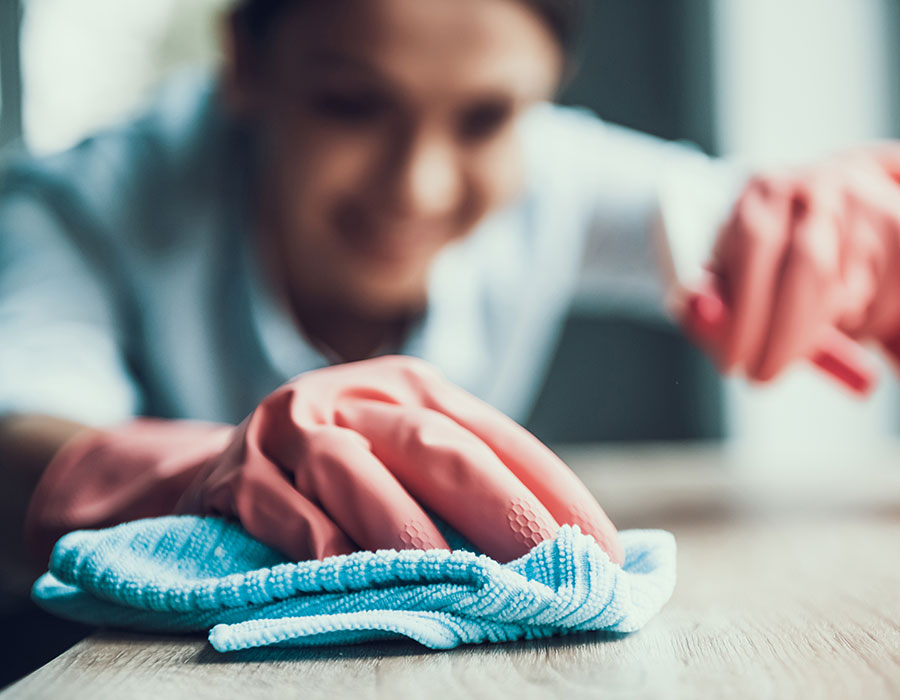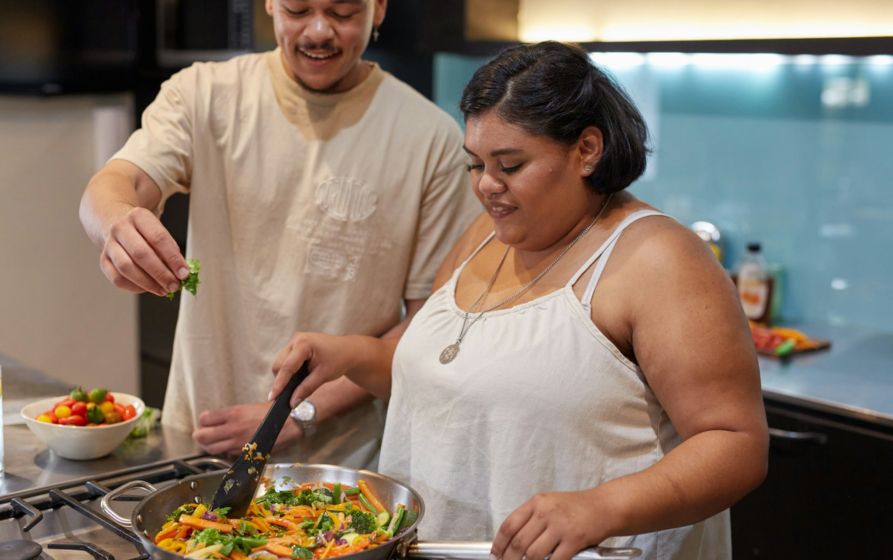Green living starts with consumers making small, informed changes for the better. At first, making more environmentally conscious decisions can seem overwhelming, but these green living tips will help you adopt more sustainable practices in your everyday routines. Over time this will reduce your carbon footprint and create a healthier, more eco-friendly community.
Check out our Green Living tips below. Or, download and print out our checklist and mark off each tip as you complete them!
You May Also Be Interested In:
- Girl’s Guide To Going Green
- Eco-Friendly Cleaning Products That Actually Work
- 8 Smart Ways to Eat Sustainably
Be the Change
Sustainable living isn’t a magic switch you flip on; it’s a process that starts with a desire to learn and make more conscious choices. Create habits in your everyday life that you can stick with and consider the ripple effect of your actions. And last but not least, celebrate sustainability. Make it the “in” way to live.
Download the Green Living Checklist
Download the Green Living Tips checklist and get started living a more sustainable lifestyle right away. Have a tip to add that we missed? Leave a comment below!

Green Living Checklist
- Recycle all your old newspapers
- Bring your own reusable bags to the grocery store
- Buy energy-efficient appliances (look for the Energy Star label)
- Turn off the lights when you leave the room
- Take shorter showers and/or install low-flow showerheads
- Don’t keep the faucet on when brushing your teeth or washing the dishes
- Line dry your clothes when possible
- Shut your computer down when you leave work (especially over the weekends)
- Skip the elevator and take the stairs instead
- Don’t use pesticides on your lawn
- Use greener cleaners, or better yet, make your own (baking soda will clean just about anything!)
- Use cold water when doing a load of laundry
- Check the air pressure in your tires for better fuel efficiency
- Turn off the dishwasher’s drying cycle and air dry instead
- Shop at your local farmers market and/or join a food co-op
- Start composting
- Fix leaky faucets
- Collect rainwater and use it for landscaping and watering your garden
- Choose reusable instead of disposable products (razors, cups, diapers, etc.)
- Use rechargeable batteries
- Unload your trunk (the lighter the trunk, the less gas you use)
- Print on both sides of the paper
- Install a ceiling fan in order to improve air circulation
- Carpool when possible
- Eat less meat. Opt for more more plant-based foods when possible
- Start a garden and grow your own food
- Replace heat/AC air filters frequently
- Switch your light bulbs to energy efficient types like LEDs
- Landscape with native plants
- Use scrap paper as note paper
- Choose bamboo when possible (flooring, cutting boards, sheets, towels, etc.)
- Leave only footprints when you travel
- Don’t litter. Like, ever.
- Unplug electronics when you’re not using them (TV, phone charger, can opener, blender, etc.)
- Opt for a green dry cleaner and also bring your own reusable garment bag
- Drive a hybrid or electric car
- Use your own reusable water bottles and coffee cups
- Inquire about where your seafood comes from; opt for sustainably harvested fish to help protect the oceans
- Give your car a tune-up so it drives more efficiently
- Eat what is locally in season
- Pay your bills online rather than mailing in checks
- Sign up for online banking to stop receiving paper statements
- Spend more time outdoors
- Use organic and ethical beauty products
- Use natural (not artificial) fragrances
- Shop for reclaimed wood furniture when possible
- Buy in bulk to avoid excess packaging
- Pass on the paper towels and napkins (use hand towels and linen napkins when possible)
- Donate your old cell phones
- Buy Fair Trade
- Vote for change and environmentally friendly laws
- Join a community supported agriculture (CSA) program that is local to you
- Decorate your home with lots of live plants to help purify your indoor air
- Reuse your ziplock bags
- Host a yard sale or donate to Goodwill rather than throwing things away
- Make sure your home is insulated, especially the attic and basement
- Opt for a programmable and/or smart thermostats
- Switch to a kindle or get a library card
- Borrow, don’t buy anything you will not use very often (such as power tools, ladders, leaf blower, wheelbarrow, etc.)
- Bring a packed lunch to work in reusable containers
- Support local restaurants that source food less than 100 miles away, and learn more about the benefits of eating locally
- Lower the temperature on your water heater
- Donate to and shop at thrift stores or host a clothing swap
- Buy organic food (especially milk, meats, fruits and vegetables)
- Install dimmer switches or motion detectors for your lights
- Buy low-VOC paint and donate any leftovers
- Get off junk mail lists and cancel your phone book delivery
- Fill up your freezer (the fuller it is, the less energy it takes to keep food frozen)
- Turn down your heat or AC when you’re not at home
- Switch from plastic to glass storage containers
- Plan for weekly Meatless Monday dinners at home
- Lower the brightness of your computer monitor and/or phone screens to use less energy or battery power
- Reduce your shower time (every 5 minutes in the shower uses appx. 8 gallons of water)
- Wrap your water heater in an insulating jacket
- Plug small appliances into a smart power strip that can be turned off when not in use
Kim is the owner and publisher of Sass Magazine, as well as the owner of Sass Studios, a boutique graphic design studio in Frederick, MD. When not in the office, Kim can be found doing some of her favorite hobbies—reading a book, dancing, traveling, or playing with her rescued pitbull.




























Subscribe so you don’t miss a post
Sign up with your email address to receive news and updates!